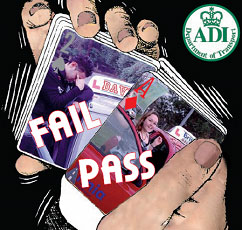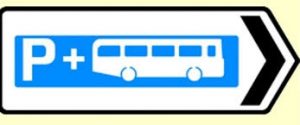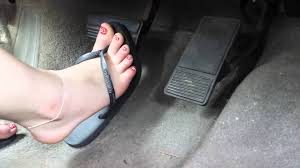The Driver and Vehicle Standards Agency (DVSA) has revealed the 10 top reasons people failed the new driving test in its first year.
DVSA is encouraging learner drivers to spend more time practising their driving skills and techniques in these areas, using a variety of different roads, such as country roads and dual carriageways.
DVSA also wants learners to spend more time practising driving in different road conditions, such as driving in rain and driving in the dark.
This will better prepare them for a lifetime of safe driving.
- Junctions – observation.
- Mirrors – change direction.
- Control – steering.
- Junctions – turning right.
- Move off – safely.
- Response to signs – traffic lights.
- Move off – control.
- Positioning – normal driving.
- Response to signs – road markings.
- Reverse park – control.
The driving test report you get given after your practical driving test tells you what each area means, and what you need to do to pass.
Insufficient observation at junctions and not using mirrors effectively when changing direction accounted for 368,047 test failures.
You automatically fail your test if you make a serious or dangerous fault – sometimes called ‘majors’.
Driving test faults reflect the factors that cause accidents, 39% of all accidents in 2017 in Great Britain were as a result of drivers not looking properly.
Driving test faults reflect factors that cause accidents on Great Britain’s roads.
Drivers in 2017 failing to look properly contributed to 35,993 accidents and was the most common contributory factor in accidents.
Chief Driving Examiner, Mark Winn, said:
“It’s vital that learners can drive safely and have the skills to drive on all types of roads before taking their test. The driving test helps get drivers ready for a lifetime of safe driving and makes our roads safer for all.
Failing to look properly at junctions is the most common serious or dangerous test fault and the largest cause of accidents in Britain. Good observation, including proper use of mirrors, is a crucial skill that drivers must learn.”
Rules, Guidance and advice on how to avoid these common faults can be found in The Highway Code including:
When emerging from a junction look all around, and do not cross or join a road until a gap is
Large enough to do so safely.
Checking your mirrors frequently and you will know what is to each side of you and behind you, making sure you use them in plenty of time before you signal or charge you speed or direction.
Positioning your vehicle correctly in the road and maintaining a steady course.
It’s completely normal to be nervous on the day of your practical driving test. You will have no need to worry if your prepared properly and your driving instructor thinks your test standard, the driving examiner is there to check you can drive safely.
Why not check out our helpful tips on our website at Britannia Driving School.
Comments(0) Buy Gifts Vouchers Here
Buy Gifts Vouchers Here Intensive Driving Courses
Intensive Driving Courses Driving Test Booking Services
Driving Test Booking Services












